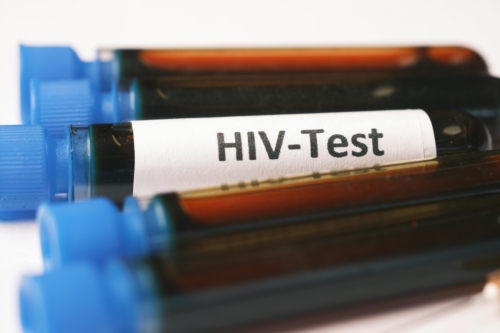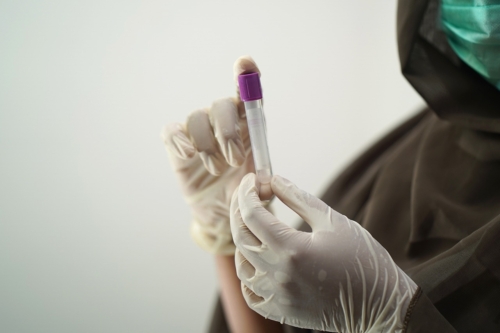
High Court stops HIV transmission case
THE High Court has stopped the prosecution of a Harare woman who is facing a charge of deliberately infecting her partner with HIV.
X was arrested in March 2022 and charged with deliberate transmission of HIV.
X, through her lawyer Paidamoyo Saurombe from the Zimbabwe Lawyers for Human Rights (ZLHR), filed an application for removal from further remand following the decriminalisation of wilful HIV transmission.
“High Court judge Justice Fatima Maxwell has stopped the prosecution of a Harare woman, who is on trial at Harare Magistrates Court on a charge of deliberate transmission of HIV as defined in section 79 of the Criminal Law (Codification and Reform) Act,” the ZLHR said in a statement.
“On Tuesday, Justice Maxwell ordered that criminal proceedings against the 44-year-old Harare woman should be stopped pending the determination of an application for review of the decision by Harare magistrate Taurai Manuwere, who insisted on proceeding with the trial of the woman on a charge which no longer exists as section 79 of the Criminal Law (Codification and Reform) Act was repealed after President (Emmerson) Mnangagwa signed the Marriages Amendment Bill decriminalising wilful transmission of HIV.”
They also argued that the law under which the woman was being charged was repealed.
In April 2022, Zimbabwe became the second country in Africa to fully repeal its HIV-specific criminal law after the Marriages Amendment Bill was signed into law.
Prior to the legislation’s passage, deliberate transmission of HIV attracted a sentence of up to 20 years in prison under section 79 of Zimbabwe’s Criminal Code.
The statute was, however, seldom enforced.
Woman challenges wilful transmission of HIV charge
A HARARE woman has approached the Constitutional Court (ConCourt) challenging her placement on remand by the National Prosecuting Authority for allegedly deliberately transmitting human immunodeficiency virus (HIV) to her partner.
X submitted that she was being charged under the now repealed section 79 of the Criminal Law (Codification and Reform) Act Chapter 9:23.
The law was repealed by President Emmerson Mnangagwa in 2021 when he signed the Marriages Amendment Bill decriminalising wilful transmission of HIV.
X, through her lawyer Paidamoyo Saurombe from the Zimbabwe Lawyers for Human Rights, filed an application for referral to the ConCourt in terms of section 175(4) of the Constitution of Zimbabwe. She was arrested on March 31, 2022 on a charge of deliberately infecting her partner Tirivanhu Majaji with HIV. She appeared in court on April 1 and was placed on remand.
X then filed an application to have the charges quashed on the basis of that she could not be convicted under an Act that was repealed.
The lower court dismissed her application on November 18 saying that the Interpretation Act provides for the retrospective application of the law in relation to criminal offences.
In her application for referral to the ConCourt before magistrate Taurai Manuwere, X submitted that she had a right not to be tried on a repealed Act.
“Section 175 (4) of the Constitution provides that if a constitutional matter arises in any proceedings before a court, the person presiding over that court may and, if so requested by any party to the proceedings, must refer the matter to the Constitutional Court unless he or she considers the request is merely frivolous and vexatious,” she submitted.
“I currently face a charge that may not constitute an offence and must be afforded the chance to have the Constitutional Court determine my rights and have me protected by the law. It is, therefore, submitted that the request is not frivolous and vexatious.”
She submitted that the ConCourt must answer questions on whether sections of the Interpretation Act are invalid to the extent that they violate section 70(1) (I) of the Constitution in that they allow prosecution based on repealed provisions of the law.
She also wants the ConCourt to make a ruling on whether her continued prosecution and trial on the present charges based on a repealed provision of the law is a violation of her Constitutional rights.
She submitted that the State must proceed by way of summons should the ConCourt rule in favour of her continued prosecution. Zimbabwe was one of the first countries to enact HIVspecific criminal laws including the Sexual Offences Act of 2001.
Those found guilty of deliberate transmission of HIV were liable to imprisonment of up to 20 years. Convictions were, however, extremely rare.
In 2021, the country fully repealed its HIV-specific criminal law after the Marriages Amendment Bill was signed into law.
Court sets date for landmark ruling on wilful HIV transmission
A HARARE woman accused of deliberately transmitting HIV to her male lover will now know her fate on August 30 this year after the matter was postponed Tuesday by a local court.
This followed delays by the State to respond to the defence’s submissions.
Should X win the case, the ruling will set a precedent regarding legislation criminalising deliberate HIV infection in Zimbabwe, thereby changing the law.
X was arrested on March 31 this year and her lawyer Paidamoyo Saurombe made an application for removal of his client from further remand arguing the offence had been decriminalised.
The Constitution of Zimbabwe adopted the World Health Organization (WHO) guidelines that decriminalised the offence.
“The accused person is charged with section 79 of the Criminal Law (Codification and Reform) Act, section 54 (2) of the Marriage’s Act (Chapter 5:15) has since repealed section 79 of the Criminal Code,” Saurombe submitted.
“In terms of section 131(2) (a) and (b) of the Constitution of Zimbabwe 2013, the Marriages Act went through both Houses of Parliament and was subsequently assented to by the President.”
He said the law was then gazetted.
“Following the repeal of section 79 of the Criminal Code which former section the accused person charged under, the provisions of section 70(1) (1) of the Constitution of Zimbabwe protect the accused person from any further remand.”
The lawyer said that there was no longer any offence or charge before the court and the accused person cannot be placed on further remand where there was no longer any competent charge before the honourable court.
The State is yet to file its response to the application which further delays X’s fate.




